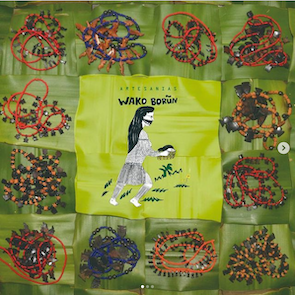Increased violence in Munduruku territory puts indigenous HRDs at higher risk
Since 26 May 2021, a series of attacks and violent events have been taking place in Munduruku and Sai-Cinza Territory in the state of Pará, affecting both public officials and indigenous leaders who live in the region and stand against illegal mining in indigenous peoples’ territory.
 The Munduruku Wakoborũn Women's Association is based in the city of Jacareanga in the state of Pará. The Association is engaged in the defence of indigenous women and the Munduruku territory against megaprojects such as dams, waterways, railways, mining, forest concession (Flona Itaituba I and II and Flona Crepori), and invasion of loggers, which impact the lives of Munduruku women, men, and children.
The Munduruku Wakoborũn Women's Association is based in the city of Jacareanga in the state of Pará. The Association is engaged in the defence of indigenous women and the Munduruku territory against megaprojects such as dams, waterways, railways, mining, forest concession (Flona Itaituba I and II and Flona Crepori), and invasion of loggers, which impact the lives of Munduruku women, men, and children.
Since 26 May 2021, a series of attacks and violent events have been taking place in Munduruku and Sai-Cinza Territory in the state of Pará, affecting both public officials and indigenous leaders who live in the region and stand against illegal mining in indigenous peoples’ territory.
The Munduruku Wakoborũn territory is located in south-western Pará. In the Tapajós river basin, the Igarapé da Baunilha river and one of its main tributaries, the Cururu river, which are located on indigenous land, guarantee the livelihoods of the indigenous populations in the area. If destroyed or damaged by mining, many villages in the region would be unable to sustain themselves.
The attacks occurred in the context of Operation Mundurukânia, which aims to combat the illegal mining in the Munduruku and Sai-Cinza Indigenous Lands. The operation, which began on 23 May 2021, is being carried out by the Federal Police, the National Public Security Force, Brazilian Institute of Environment and Renewable Natural Resources (IBAMA) and the National Indian Foundation (FUNAI). The public officials were to remain in the area for 90 days.
On 26 May 2021, during a protest against the Mundurukânia operation, miners and representatives of an indigenous minority who are reported to have been recruited by the miners, had a confrontation with public officials involved in the operation and attempted to break into the base of operations and burn the equipment used for inspections. When the miners were stopped, they went, armed and carrying gallons of gasoline, and broke into the Fazenda Tapajós village, shot in the direction of the indigenous people and threatened to burn the bridges that gave access to the region.
During the attack three houses were burned down, among them the house of Maria Leuza Kaba, one of the leaders of the Munduruku Wakoborun Women's Associations, and the house of her mother, the cacique of the village. In addition, the miners cut off internet access in the region as a way of blocking communication and the denunciation of the attacks.
On 27 May 2021, the miners threatened to attack other villages to intimidate leaders, such as Ademir Kaba, Isaías Krixi and Ana Poxo, who are against mining on indigenous lands. However, despite reports that groups of miners have been moving to other villages, the federal and state forces withdrew from the region. The Federal Public Prosecutor's Office, in a letter to FUNAI, IBAMA and the Federal Government, criticised the withdrawal of the Federal Police and the National Force, stating that instead of bringing an end to illegal activities, the withdrawal has contributed to intensifying the conflict.
The incidents in the last days are the extension of a series of attacks that have intensified since March 2021, when a group of miners associated with illegal mining broke-into and attacked the premises of the Munduruku Wakoborum Women's Association. The miners, who have the support of the Jacareanga municipal administration, have been systematically threatening and intimidating leaders who denounce illegal mining on indigenous lands.
Front Line Defenders has been following the escalation of violence against indigenous people’s leaders in Munduruku territory with deep concern, and it considers the escalation of violence to be part of a broader pattern of ongoing violence against indigenous people in Brazil. Front Line Defenders is seriously concerned for the safety and physical and psychological integrity of the leaders of the Munduruku territory, particularly from the villages Fazenda Tapajós, Pombal, Santa Cruz, Katô, Missão Cururu and Poxorebem and the indigenous peoples' rights defenders who support them.
These types of raids, attacks and threats violate the constitutional rights of indigenous peoples, which ensure exclusive use (usufruto) of their traditional territory. Front Line Defenders condemns the attacks against the Munduruku People and believes these are directly related to the legitimate and necessary work carried out by indigenous leaders in defence of land and environmental rights.
